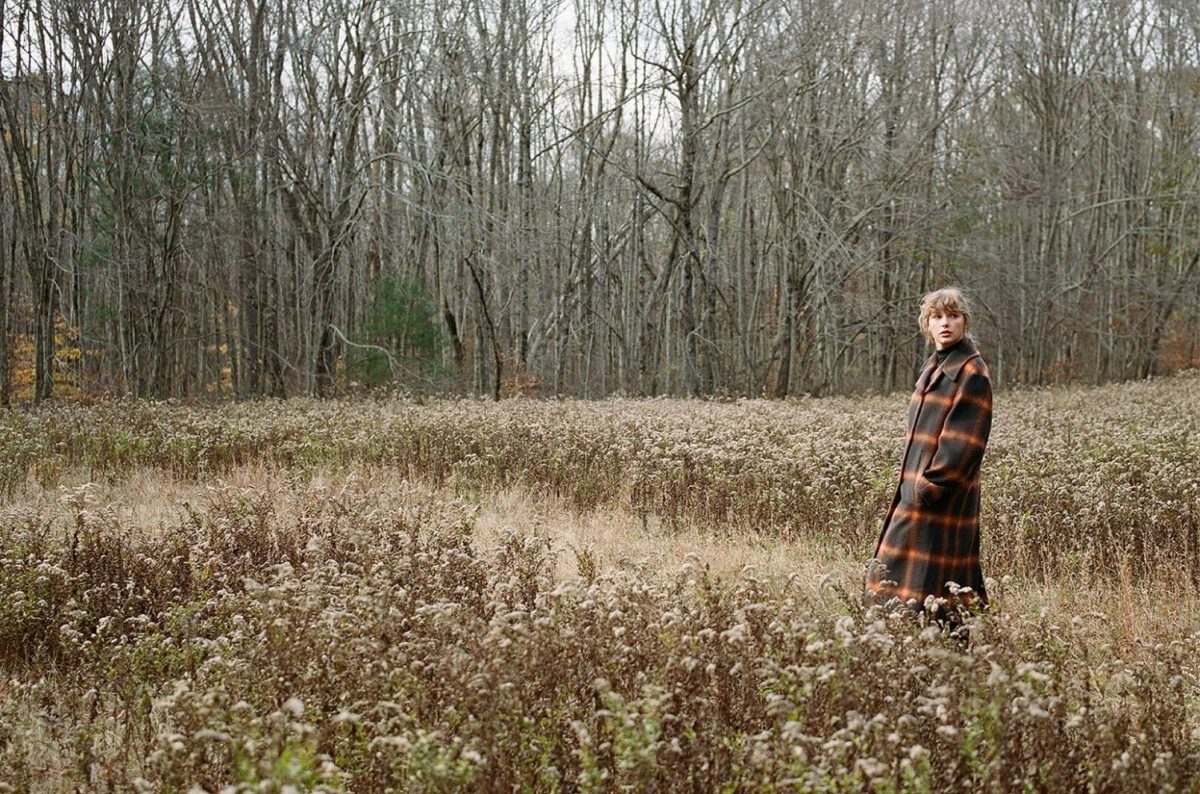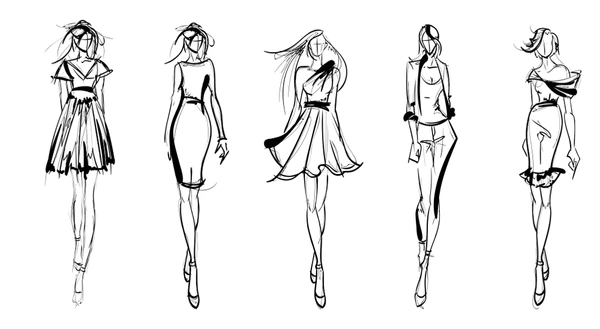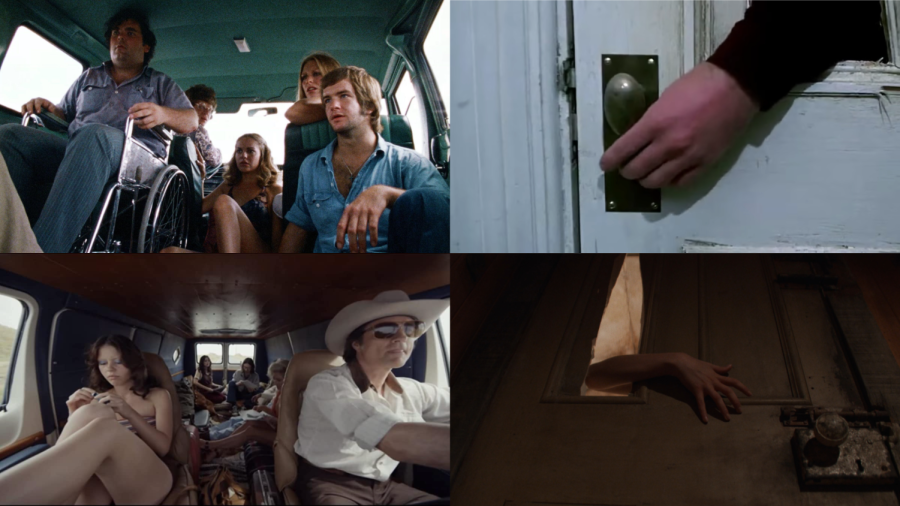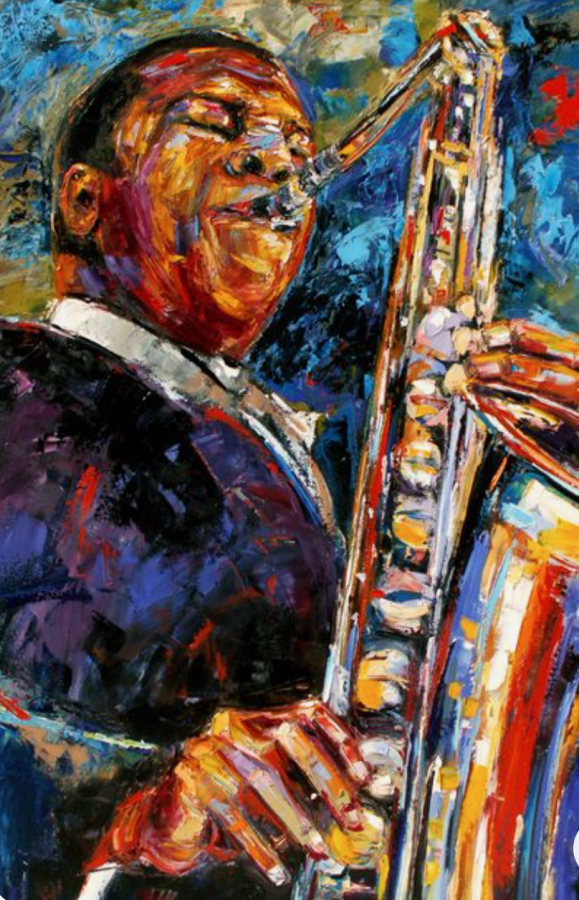Evermore is Taylor Swift’s ninth studio album and the sister album to the beloved Folklore but is ranked as many people’s least favorite. This profoundly emotional album needs just one more listen for people to understand its beauty. While it may not have its own love triangle or world tour, it makes up six songs of the Eras Tour and is one of my top albums from Taylor. This was one of two albums released during COVID-19 and the songs on it pull away from Taylor’s original country and pop roots and go into genres like ‘indie pop’ and ‘alternative folk.’ These genres are not what made Taylor Swift the household name she is today, and when listening with my mom she often would ask if certain songs were “about her latest breakup.” Her newer music hasn’t been about her past relationships, but focuses more on emotions– and Evermore encapsulates this perfectly. Unlike Folklore, Evermore doesn’t have a nearly two-hour-long movie explaining each of the songs in depth, but I can take inspiration from her lyrics to tell the story how it appears to me.
Track 1 – Willow
Willow is about a romance that you make work by fixing yourself for it. Taylor Swift says, “Life was a willow and it bent right to your wind.” This shows the idea of your lover being the wind that you bend and change yourself for, altering the way you act for someone else’s approval as willow tree leaves shift and change in the wind. The music video shows a girl following a childhood friend that she loved. She does anything to have them, the lyrics saying, “Wherever you stray, I follow, I’m begging for you to take my hand, Wreck my plans, That’s my man.” She is saying that however he changes she will change with him and that she doesn’t care if he wrecks her plans as long as he is her man at the end of the day. The song is about trying to pull someone in and the sound of the song is similar to invisible string. In the music video for Willow a single thread of gold is featured to show the ties holding the two strands together or the two lovers, which again is another allusion to an invisible string.
Track 2 – Champagne Problems
Champagne Problems is a track about a man who proposes to a girl who he thought was the one. He begins to be told by her that it isn’t going to work, and he has to find a girl who could patch up his hurt and be the right one for him. This song is about anticipation and rejection, thinking you found the one but they were not in the same place. At the end of the song Taylor alludes to a lyric at the beginning of the song, singing, “She’ll patch up your tapestry that I shred, And hold your hand while dancing, Never leave you standing, Crestfallen on the landing, With champagne problems.” These are all the things that the girl he proposed to couldn’t do for him. The Red Vault track All Too Well Ten-Minute Version music video also alludes to the repeated lyrics in the song that are, “You dropped my hand while dancing.” In the ATWTMV Music video at 4:19, there is a pause in the song where the two people portraying the relationship in the song get into a fight about how he accidentally drops her hand at dinner. The girl is furious and yells at him about how much more it is to drop someone’s hand– she is mad he dropped her hand because she felt alone at the event her boyfriend planned. In champagne problems, the girl drops his hand because she believes she can hold on and handle the relationship he wants for them.
Track 3 – Gold Rush
The third track on Evermore, Gold Rush, is about daydreaming of the perfection or the jealousy caused by someone close to you. A lyric on the song goes, “What must it be like to grow up that beautiful? With your hair falling into place like dominoes, My mind turns your life into folklore.” The first part of the lyric asks a question about the person being described trying to grasp the seemingly unattainable beauty of the person she is competing with. The second part of the lyric provides a simile to capture the perfection and angelic hair of the person. Falling like dominoes reminds me of falling in perfect sequence and being mesmerized by its simple perfection. The third part of the lyric alludes to Evermore’s sister’s album Folklore and is essentially saying that the person being described in the song is so perfect that her/his life must be perfect and unattainable like stories of folklore.
Track 4 – Tis The Damn Season
The song Tis The Damn Season is narrated from the perspective of Dorothea, a character who returns to her hometown where she encounters a former lover, knowing the relationship will end. The opening line of the song goes: “If I wanted to know who you were hanging with, While I was gone I would have asked you.” This line is defensively mean and you can tell the relationship is going to end badly based on this opening line. She is saying in response to the guy hanging out with another girl that, “I don’t care and if I wanted to I would’ve asked.” The close following line goes: “There’s an ache in you put there by the ache in me.” This shows they are both in pain over their previous relationship and it is confirmed that they want to rekindle it based on lines 25-29 which read, “Now I’m missing your smile, hear me out, We could just ride around. And the road not taken looks good now. And it always leads to you in my hometown.” These lines show the idea of rekindling their relationship behind the scenes and that their hometown love is something that they always end up going back to. Later in the song, she references this hometown love and how deep their connection goes saying: “So I’ll go back to L.A. and the so-called friends, Who’ll write books about me, if I ever make it. And wonder about the only soul who can tell which smiles I’m fakin.’” She is saying that nobody knows her real smile and happiness and she doesn’t have friends but in the idyllic small town romance she feels trusted and supported, she feels like her career hasn’t even made and is doubtful about it which is shown in the first part of the lyric where she says, “If I ever make it” as if she hasn’t quite made it yet or doesn’t believe she has or ever will make it. This small-town romance song is beautiful and shows so much emotion and depth in each line, leaving you questioning the story and wanting a sequel to it to understand more.
Track 5 – Tolerate it
The story told in Tolerate It is about a girl who wants love from someone but isn’t given the attention she is working for. The 5th and 6th lines read: “I wait by the door like I’m just a kid, Use my best colors for your portrait.” The desire for attention and appreciation is so deep that the character in the song will wait for hours by the door for them and use their best qualities to describe them like painting them onto a portrait. The song paints the picture of desperation and the chase of a forgotten relationship. A later line reads, “I polish plates until they gleam and glisten.” This is another one of the homemaking acts that the character in this song does for the few seconds of attention in the relationship. The closing line of the song is “sit and watch you.” The character portrayed in this song spends her days waiting for the attention of her partner whereas he lives his life as if she isn’t even there.
Track 6 – No Body No Crime (Ft. Haim)
No Body No Crime is like a murder mystery wrapped up into a three-minute thirty-six-second song. The first two lines are, “He did it” with a police siren in the background, and the next stanza of the song sets the scene for the murder mystery. Este is killed by her husband after she discovers him cheating. The song is narrated by a close friend of Este’s who notices the murder after Este skips their routine dinner at Olive Garden. The narrator then details the steps she takes to frame the husband’s mistress for her friend’s murder like, “Good thing my daddy made me get a boating license when I was fifteen. And I’ve cleaned enough houses to know how to cover up a scene.” These are a few things that Este’s friend does to frame the mistress. This song is about the dedication of friendship to help a friend who had been crossed and if you are a murder mystery or true crime fan this song is a must-listen at least once!!
Track 7 – Happiness
Happiness is the 7th track on Evermore and is about noticing the flaws in a relationship once you realize it is ending. The title might distract from this meaning but the song highlights the bits of joy tied to the flaw like in the first stanza where the narrator says, “Showed you all of my hiding spots, I was dancing when the music stopped.” This line highlights the vulnerability of the relationship where the narrator could show her hiding spots and how she was still dancing when the music stopped, and the music can be seen as a metaphor for their connection and that she continued holding on when the connection stopped. The second stanza begins with, “There’ll be happiness after you. But there was happiness because of you. Both of these things can be true.” These lines tie into the theme of joy and flaw, there can be happiness in a relationship and after one, and there can be happiness because of a relationship and there can be happiness to be out of one. This song is a good exercise to look for the silver linings in flaws and how happiness and memories can idealize the worst of situations.






